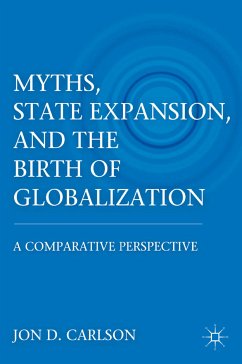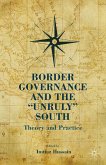Dieser Download kann aus rechtlichen Gründen nur mit Rechnungsadresse in A, B, BG, CY, CZ, D, DK, EW, E, FIN, F, GR, HR, H, IRL, I, LT, L, LR, M, NL, PL, P, R, S, SLO, SK ausgeliefert werden.
'In this well-written and carefully argued work, Jon D. Carlson forces us to consider, through a comparative examination of how different regions have historically been incorporated into the world system, the representational devices of the myths of expansion. Equally fascinating, creative, and rigorously executed, Carlson's theoretically rich work engages, synthesizes, and implicates a variety of core assumptions centralized by International Relations scholars.' - Brent Steele, associate professor of Political Science, University of Kansas and author of Defacing Power: The Aesthetics of Insecurity in Global Politics
'A benchmark for addressing issues of incorporation and globalization. The book also has pedagogical value both for explicit content and as a model of how such work can be done. It will have broad appeal to scholars of world history, archaeology, geography, sociology, and international relations.' - Thomas D. Hall, Professor Emeritus, Depauw University









